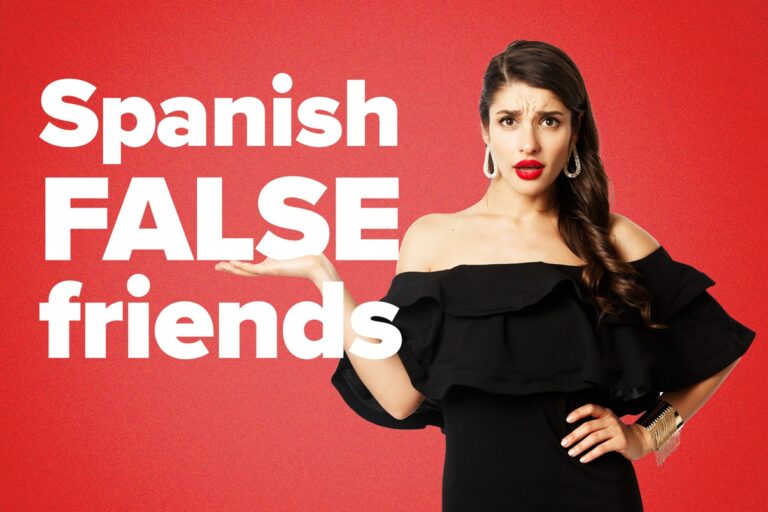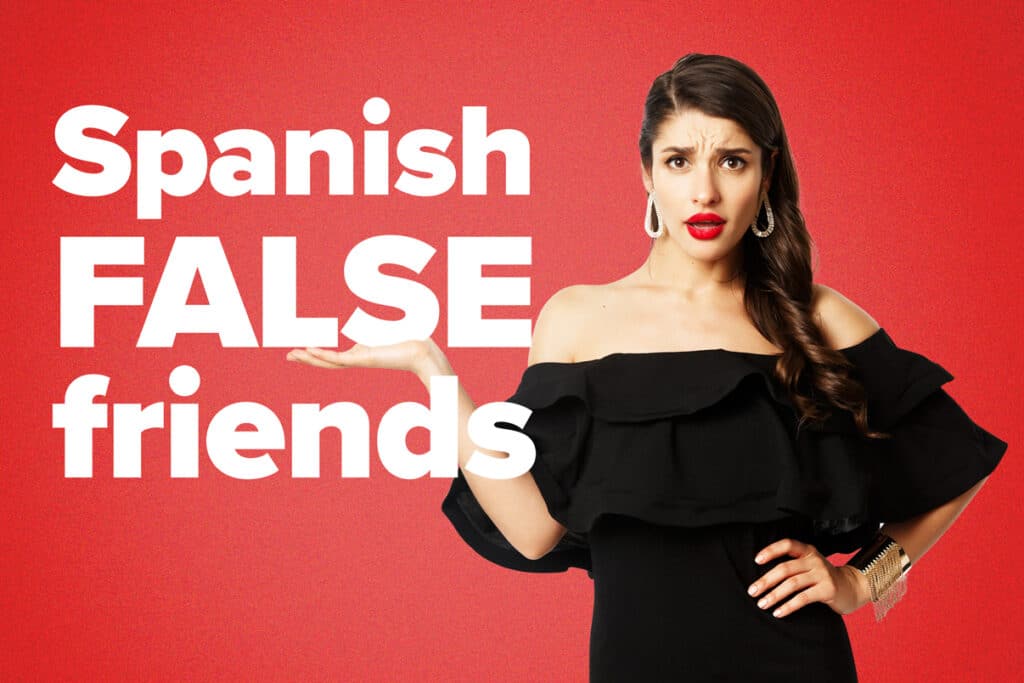
False friends are deceptive and two-faced—and they can show up in language learning too.
These false friends are words that sound the same in English and Spanish. They lure new users of the language into thinking they have the exact same meaning in both languages too, such as library and librería.
But these can be overcome if you study them closely. I’ve listed down common Spanish-English false friends here so you can watch out for them.
Download:
This blog post is available as a convenient and portable PDF that you
can take anywhere.
Click here to get a copy. (Download)
Contents
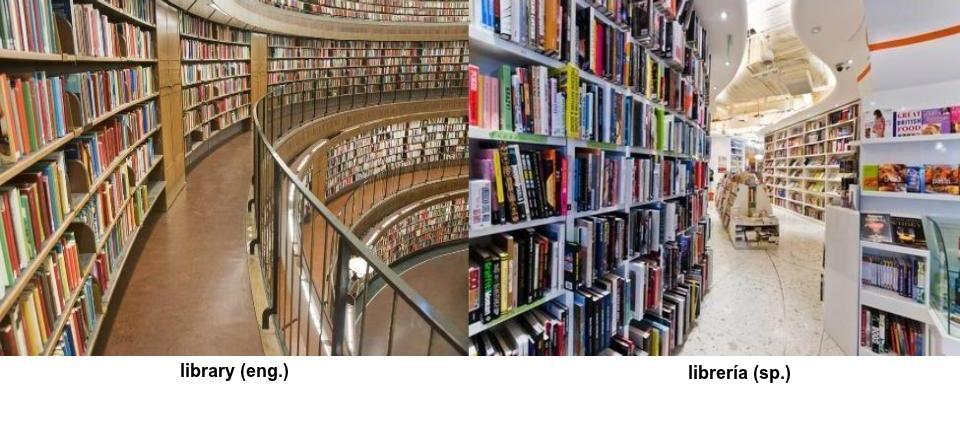
Meet librería and library. You could go to either one of these places to pick up books for your Spanish reading practice. The difference is that one of them is for profit (bookstore) and the other is more philanthropic (library). Can you guess which is which? From hereafter, it should not be a guessing game!
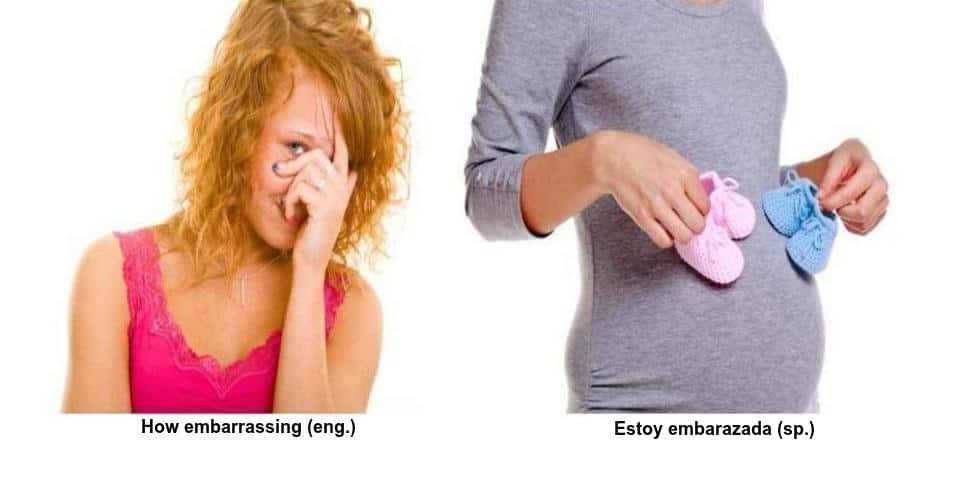
Imagine being out with a group of Spanish friends and then accidentally spilling your drink on someone. What you want to say is: “I am so sorry, how embarrassing!” (Lo siento, ¡qué vergüenza!) But instead, you say: “I am so sorry, I am pregnant!” (Lo siento, ¡estoy tan embarazada!)
Your friend stares at you awkwardly, not knowing how to react. It would have spared you from some uncomfortable moments had she known the difference between these two phrases.

One of the more dangerous pairs is constipado and constipated. While they both indicate a lack of health, they refer to very different conditions. More importantly, they are both treatable with over-the-counter products.
Obtaining any kind of medicinal product in Spanish-speaking countries requires you to go to a pharmacy and speak with the pharmacist. So, it is wise to know the difference between these two.
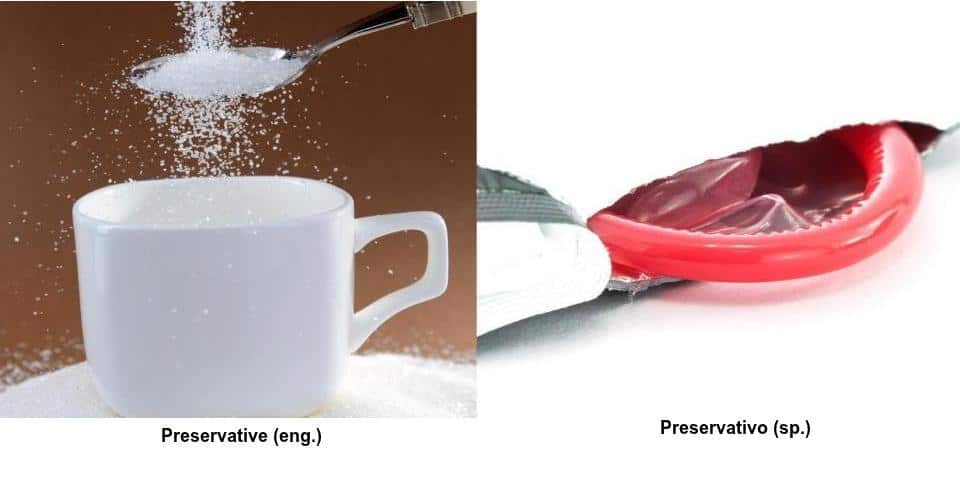
These are probably the most embarrassing false friends on this entire list. After all, both of these words can be thought of as preserving or conserving something. With un conservante (preservative), you’re preventing food from spoiling, while un preservativo (condom) protects from pregnancy.
Be careful with these—your listeners will definitely give you a funny look (or laugh outright) if you’re trying to talk about preservatives but end up mentioning condoms instead.
Realizar
(To carry out, perform or achieve) | Darse cuenta
(To realize)

False friends are a lot like parasites. That is, without their host (native language) they cannot survive. Once you realize (darse cuenta) this, you will be freed of their power over you and be better equipped to achieve (realizar) your potential in Spanish.

Maybe you’re talking to your friends about the difference between your country and Spanish culture, and the topic steers towards violence and youth. Impulsively you ask: “Are there a lot of bargains in Spain?” when what you really mean to contribute is: “¿Hay muchas pandillas en España?” You know something is wrong when your friends ask in a puzzled tone: “¿Gangas?”
All you can do is explain and take the heat for your mistake. Spanish people like to tease others about anything and everything!

Take a close look at the words above. See if you can spot the differences between them!
Although almost identical in their format, the word lectura in Spanish is not in any way synonymous to a lecture in English. You can certainly make inferences about how they are related, but you cannot use them interchangeably.
Recordar
(To remember) | Grabar
(To record)
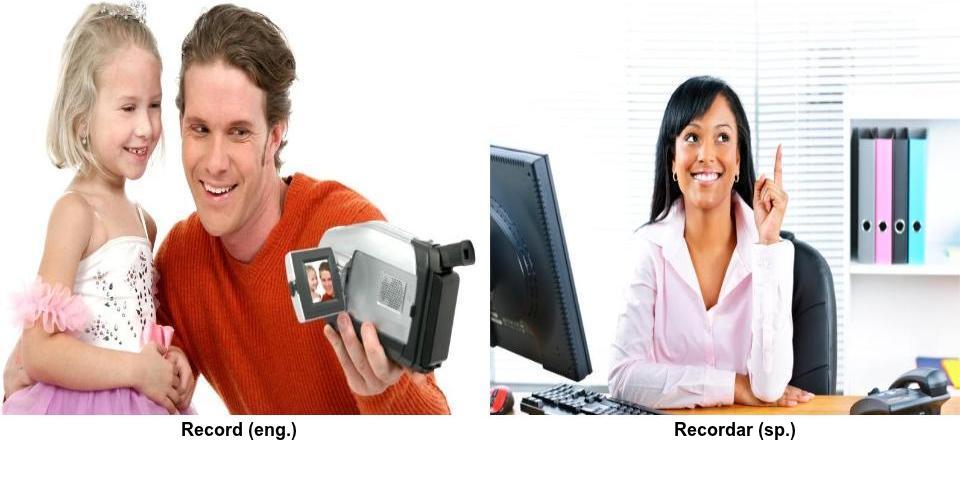
Hmmm, let me see if I can remember…Yes, I remember. You may not record these words as alternates. recordar ≠ record.
Recordar actually comes from the Latin word cor, which means heart, so recordar means to revisit something in your heart. On the other hand, grabar means to save (or to “grab”) sounds in a camera, phone or other device.
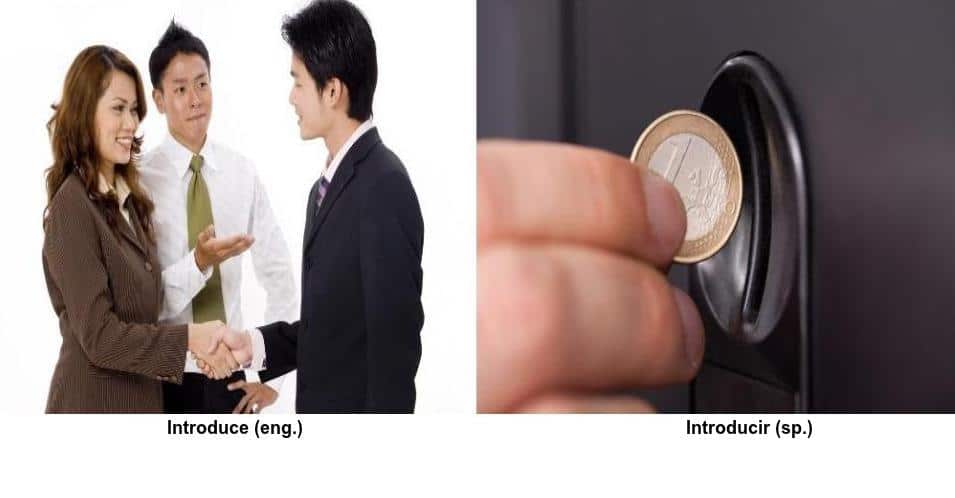
Introducir is about inserting an object, whether you’re putting a coin in a slot, entering your password on a website or even metaphorically “introducing” new regulations. But it has nothing to do with meeting other people!
The Spanish word for that would be presentar instead. You’re “presenting” (introducing) yourself or someone else to another person or an audience.
Carta
(Paper letter, playing card) | Tarjeta
(Credit, debit, greeting card)
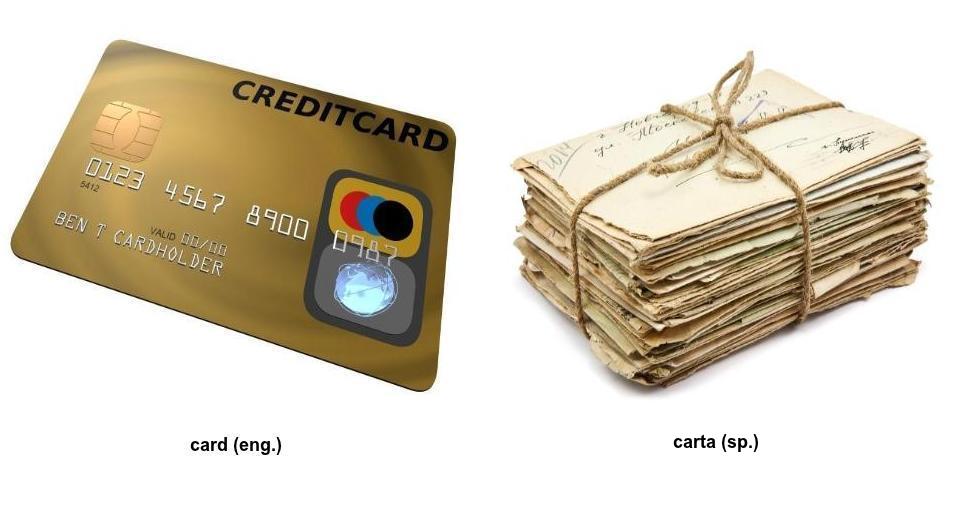
This one can be really confusing. If you’re at a shop and about to pull out your debit or credit card, don’t ask if you can pay using your carta. Carta means a letter—usually, the physical, old-fashioned type that you send over mail. For example, a carta de amor is a love letter.
On the other hand, tarjeta is used for credit or debit cards, along with greeting cards and business cards.
There’s one exception, though: playing cards actually go by carta too.
With so many similarities between Spanish and English, it’s easy to get complacent and start assuming English-sounding words have a similar meaning. Remember that any new skill requires practice, practice, practice.
Aside from exposure, flashcards are a great way to remember these tricky false friends. You can do minimalist flashcards on Anki, or use multimedia flashcards on FluentU with audio and video included. Each vocabulary on FluentU also links to authentic videos featuring the word, so you can understand exactly how to use it.
It’s okay, though, to make a healthy dose of mistakes. As long as you are open to learning from them, they will always lead you in the right direction.
Download:
This blog post is available as a convenient and portable PDF that you
can take anywhere.
Click here to get a copy. (Download)


